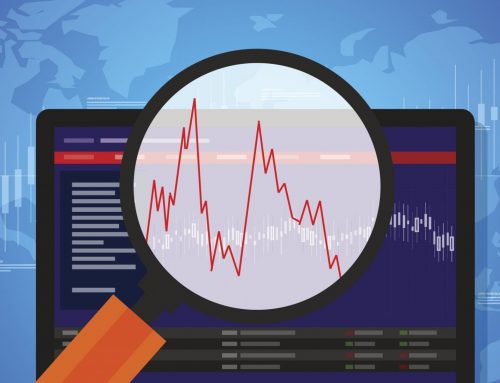Arbitrage/scaling is one of the oldest trading strategies. Binary options can skew strategies that have been brought to many traders for decades.
What is arbitrage?
Arbitrage or ‘extension’ is a classic trading strategy that has been around for hundreds of years. Simply put, it is the art of buying an asset cheaply in place A and immediately selling it at a high price in place B.
Suppose a stock in London sells for £100 and at the same time a trader in New York offers to buy £101. If you bought a stock for £100 and sold it for £101, you would have made a profit of £1. It’s not that much, but since both trades happen at the same time, there’s no risk. Profits are guaranteed, so even small profits are worth investing in.
Additionally, most arbitrage traders trade larger quantities to make up for the small gains of each individual quantity. With little to no risk, you can invest more of your account balance on each single trade and get the same profits as traders with riskier strategies and less investment.
Account
To spot these opportunities, traders need access to asset prices. In the binary market, this is only possible by having a trading account with multiple brokers.
Arbitrage Process
- Monitor a market or asset. Check values from various brokers or market makers.
- An arbitrage opportunity has been opened if the values are different and cover the cost of the transaction.
- Open a position at both “buy” and “sell” prices. Set your trade size to guarantee a profit.
Types of arbitrage trading
There are various arbitrage structures or methods available. Different markets require slightly different things to ensure a profit. Some of these differences are explained here.
- Traditional – The usual or most common form of arbitrage is where an asset can be taken and sold at two prices. Traders can buy low, sell higher, and still keep a risk-free profit after trading costs.
- Betting – ‘Irving’ betting follows the same process. However, sports bettors can back the same selection in lieu of net worth. Assuming the prices are different enough, traders can place a lower price than underpinning their pick. Proper stake sizing can guarantee you a profit regardless of the outcome of the sporting event.
- Forex – Traditional arbitrage trading is extremely rare in major Forex trading. However, you can forego forex in the long run by taking advantage of interest rates. Constantly fluctuating exchange rates mean that while this is not always zero risk, it is not easily achievable at low cost for retail investors.
- Binary – In binary options traders need a volatile market. This may result in different payouts at different brokers. The two-sided trading feature of digital options enables arbitrage trading. At least one payout must be 100% or higher. In the absence of volatility, market sentiment on one side is the only other driver that could cause unusual payout numbers.
Arbitrage Strategy
With binary options, arbitrage strategies are very different from traditional arbitrage strategies. The classic arbitrage strategy is based on the property that there are several large markets in which goods can be bought and sold, and in one market you can sell what you buy in another.
Binary options do not have a central market, so you will need to slightly modify your arbitrage strategy. Arbitrage opportunities are limited compared to assets like stocks, but there are a few.
Here’s what you can do:
- Comparing other brokers: All brokers pay their own. When comparing multiple brokers, you can invest in the rise in the price of an asset in one broker and the fall in the price of another broker and get a guaranteed return of 100% or more.
- Similar Stock Comparison: A lot of news affects more than one stock. When a country’s central bank decides what to do with the base rate, the bank is usually strongly influenced. By predicting the price rise of one bank and the fall of another bank
- Compare linked currencies: Currencies are always traded in pairs. If you get three currencies, you get three pairs. Often, you can combine these pairs to find an arbitrage opportunity that can effectively guarantee payouts of 100% or more.
- Comparison of linked asset types: The relationship between the US dollar and oil/gold is often inverse. As the dollar rises, oil falls. This relationship also provides an arbitrage opportunity. The best opportunities for this type of trading are during times of high volatility, for example right after important news is announced.
Risks associated with arbitrage
The key point that makes arbitrage opportunities so rare is the transaction cost. Generally, traders can buy and sell the same asset whenever they want, but with less loss. There is usually a spread or trading margin to configure. If you bring in and sell assets, transaction costs mean that you incur some losses. Even if the asset was taken and sold for the same price.
Any arbitrage formula or calculation must include these transaction costs. Failure to do so may guarantee you a loss rather than a profit.
Another risk is the risk of price changes. Price differences can be corrected very quickly. If these corrections are made before both sides of the trade have been made, the opportunity for profit is lost. If your trades are made on other brokers or trading platforms, this risk is high.
trading software
Brokers with comparable asset prices:











